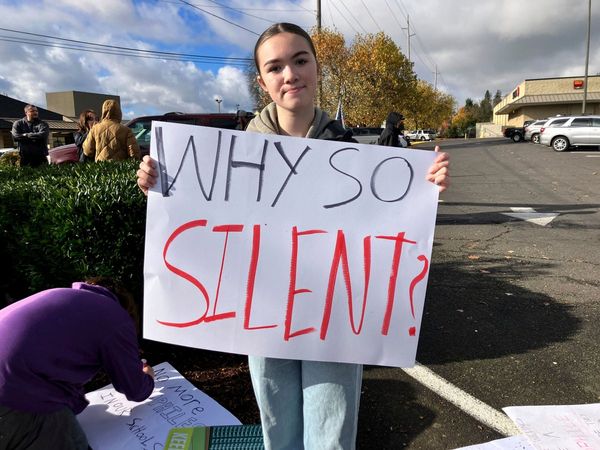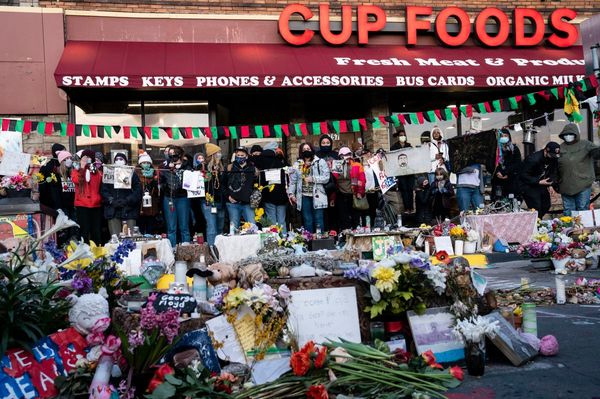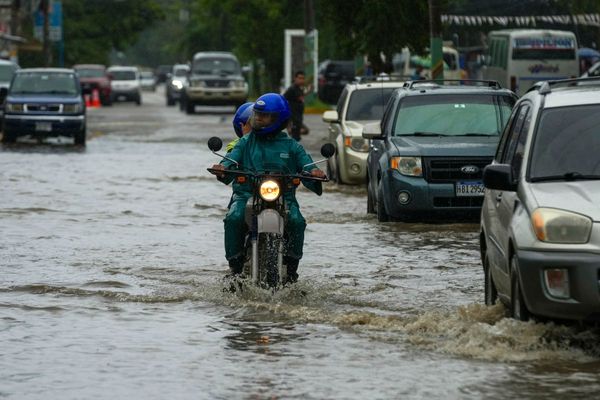I didn’t know anything about the Paralympic Games until the 2000 Olympics in Sydney.
My mum bought tickets to the Paralympics, and we went out to Homebush to watch some events. I couldn’t believe what I saw: elite athletes at the top of their game, who also happened to be disabled. It was the first time I felt truly seen. I was 14. Up until then, I hadn’t really seen people with a disability – like me – in the spotlight, let alone on a podium.
I was born with dwarfism, and seeing the athleticism at the Paralympics flicked a switch inside me. I had always loved swimming – and I was quite good at it, unlike other sports – and after watching the Paralympics, I knew I wanted to compete at the Games.
I stepped up my swimming, joined a squad, climbed the ranks and eventually started training at the NSW Institute of Sport. I’m not exaggerating when I say swimming changed – and likely saved – my life. For the first time, I felt like I was actually good at something.

I’d never been academic, and I was heading down a bad path before the revelation at the Paralympics changed my course. I trained my arse off and qualified for the 2004 Athens Paralympics. I was 18.
I clearly remember touching the wall at the end of the women’s 50m butterfly S6 event. I looked up at the stands to see my parents, brother and his girlfriend. The crowd roared. I’d won bronze and got to stand on the podium in front of my family, my coach, teammates and hundreds of spectators. Time slowed down and I felt every tiny emotion very deeply.
I was relieved, stoked and enormously proud to be an Aussie. Oi, oi, oi!
After Athens, I went on to compete at the 2008 Beijing Games and the 2012 London Games. Back then, prize money wasn’t a thing. In fact, until just a few years ago, Australian Paralympians didn’t receive any payment for representing their country and doing us proud.
It was only after a campaign in 2020 that the government introduced pay parity so medal-winning Paralympians would be awarded the same bonuses as Olympians.
This year, the Paralympics are being broadcast on Channel Nine – a mainstream network! – and I’ll be in Paris to help with athlete welfare support.
We’ve come a fair way, but there’s still further to go. A lot of people still use the Olympics and Paralympics interchangeably, but they’re not the same. When people mistakenly say I competed at the Olympics – I think they mean it as a compliment – I’m quick to correct them. I’m proud to be a Paralympian. We are elite athletes in our own right.
Terminology matters. That’s part of the reason why I wrote the kids’ book ABC Disability, which came out in June. I was never taught about disabilities or diversity when I was a kid, and I wanted my children (who are able-bodied) and their mates to have a different experience.
It’s my dream for this book to sit on bookshelves in schools, day-cares, libraries, cafes and homes around the country – and the world. It’s a fun and colourful introduction to an alphabet of disability terms, and a timely reminder that there’s no shame in being different. I honestly think this book will change lives, in the same way the Paralympics changed mine.
ABC Disability (Hachette, $24.99) by Sarah Rose with Alley Pascoe, illustrated by Beck Feiner, is out now.
This article originally appeared on Marie Claire Australia and is republished here with permission.







